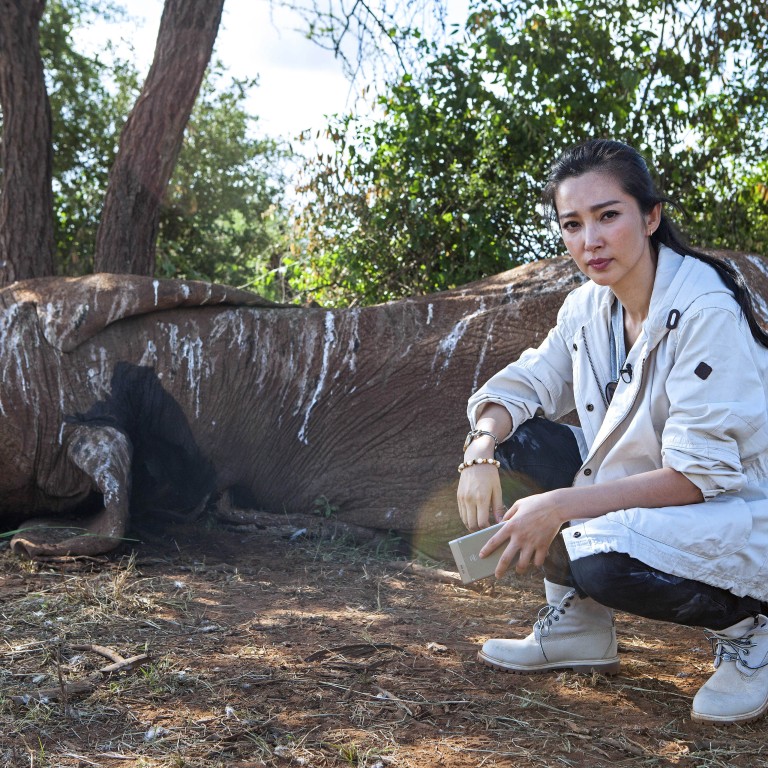
Hong Kong government ‘open-minded’ about ivory ban in major policy shift
The Hong Kong government has announced it is “open-minded” to a ban on the domestic trade in ivory, in a major policy shift, that could follow mainland China and the United States in eliminated the appetite for elephants.
The Hong Kong government has announced it is “open-minded” to a ban on the domestic trade in ivory, in a major policy shift that could follow mainland China and the United States in eliminating the appetite for elephants.
The pivot away from the trade comes as green groups widened criticism of Hong Kong’s role in supporting the international trade of ivory.
READ MORE: Elephants are dying because of Hong Kong’s failure to tackle illegal ivory trade, report says
“The Government is open-minded on the ban on domestic trade. We will continue to monitor the latest international development and recent development in Mainland China very closely in respect of the control of ivory trade (including any ban on domestic trade),” a spokeswoman for the Agriculture, Fisheries and Conservation Department (AFCD), said.

Chinese actress Li Bingbing endorsed conservation group WildAid on Friday in calling upon Hong Kong to join mainland China and the United States in banning the domestic ivory trade.
WildAid has led calls for a ban, alongside the formation of a new and dedicated wildlife crime unit to combat the trade of elephant tusks, in light of moves by Beijing and Washington to end the trade.
During President Xi Jinping’s state visit to the United States last month, leaders of the two countries – the largest markets for illegal ivory – vowed to enact a near-complete ban on imports and exports.
Actress Li said: “Two weeks ago President Xi announced that he and President [Barack] Obama would be banning all ivory sales in their respective nations – a huge step forward for elephants. So why can’t Hong Kong join them? The vast majority of the Hong Kong public is in favour of a ban.” Over 90 per cent of ivory sold is being illegally smuggled to the mainland, not bought by Hong Kong citizens.
“So my question is why is the Hong Kong government keeping this trade alive for the benefit of a small number of people who have already profited from the destruction of elephants?”
WildAid chief executive Peter Knights said Hong Kong had had 26 years to take action since a 1989 ban on trading in new ivory was implemented, and time had run out.
“Enough is enough. There are multiple pieces of evidence – from other green groups and independent media – showing that the system [to regulate ivory] in Hong Kong leaks like a sieve. Now the United States and China have announced they are stopping sales, it’s time for Hong Kong to announce it too.”

The AFCD said it welcomed joint efforts of different sectors to promote public awareness on endangered species protection, referring to the investigations and campaigning by green groups. “It would be more effective if the Government, non-government organisations and the public could work together in the protection of endangered species,” an AFCD spokeswoman said, offering a fillip to organisations fighting for the survival of elephants.
Transformers: Age of Extinction star Li added the “legal” trade in ivory was supposed to ensure that only ivory from natural mortality and government culls were traded, but instead the African elephant population was halved and the legal trade used to provide cover for the illegal trade.
“Hong Kong was the epicentre of that trade – the chief beneficiary of a system that could turn illegal ivory into legal ivory,” she said.
WildAid repeated earlier criticisms of the ivory licensing system, following the release of undercover video of traders admitting they could manipulate government regulations to smuggle illegal ivory.
Following the criticism last month of the ivory licensing system, the AFCD caved in to pressure and announced it would review every licence and audit each piece of ivory.
READ MORE: Tanzania charges Chinese woman dubbed the ‘Queen of Ivory’ for smuggling 700 tusks
Elizabeth Quat, a pro-Beijing lawmaker, said she was hopeful the government would soon take action.
“There is a very good sign that Hong Kong will ban the trade because after years of campaigning, the government admits there’s a problem, there are loopholes, and they should do something.”
The Democratic Alliance for the Betterment and Progress of Hong Kong legislator recounted a meeting she had on Thursday with Environment Bureau permanent secretary and director of the Environmental Protection Department Anissa Wong Sean-yee.
“[Wong] said that on the total ban of the domestic ivory trade the government had an open mind. She did not promise to do anything, but admitted it was a problem,” Quat said.
“To me it is a very good sign already, but I will keep pushing them to trigger a consultation.”

